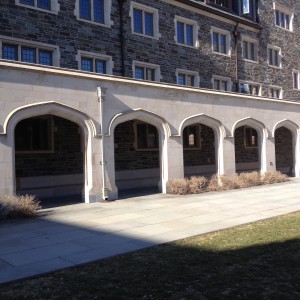
As PCUR’s inaugural year comes to a close, we have good news and better news. The good news is we’ll keep blogging next year, to help guide you with our personal research stories. We’re excited to continue advising you from draft to deadline.
The better news is we’re looking for new members – and since anybody is welcome to apply, you must be excited, too. Why should you submit an application to join us next year? Here are five of infinity reasons to that effect:
- You’re reading this blog
If you clicked on a link about undergraduate research, then research is obviously on your mind. And since you’re still reading, you must have spare time to think about independent work. Interest + time = great PCUR posts.
- You’ve had (any) research experience
Whether analyzing specimens in the field, collecting data online, or writing a term paper, you’ve learned from participating in a research project. Your insights could help someone get to or get through a particular stage of independent work – and we’d love to know how.
- You give good advice
Being a correspondent is not about having the right answers (although that doesn’t hurt!). It’s about reflecting honestly on your research experiences. If you can communicate recommendations in a relatable and honest way – making other students nod their head in agreement, or laugh at a silly mistake – why not put those skills to good use? You’ll develop a keen outlook on your own research by sharing your trial-and-error process.
- You like to write (and enjoy getting feedback)
Some people write because they have to; others write because they have something to say. If you’re in the latter category, you’d find plenty to say with PCUR. You can display your writing skills by developing your own blogs and editing those of other correspondents. Plus, you can sharpen your writing skills through peer review. As a PCUR, you’ll send and receive written comments on a biweekly schedule, which will help you evaluate the impact of your words.
- You want to meet people who do fascinating things
PCUR brings together students from natural sciences, social sciences, engineering, and humanities. Put another way: PCUR reveals the incredible range of independent work undertaken by Princeton students. Other correspondents will inspire and challenge you to approach research creatively. At the same time, you can interact with the broader Princeton community to discover students’ research projects, as well as their exciting results.
You just read reasons #1-5, and that fact alone confirms #1: You’re reading this blog. Assuming #2-5 apply just as strongly, please send in your application materials before April 17!
— Melissa Parnagian, Social Sciences Correspondent

